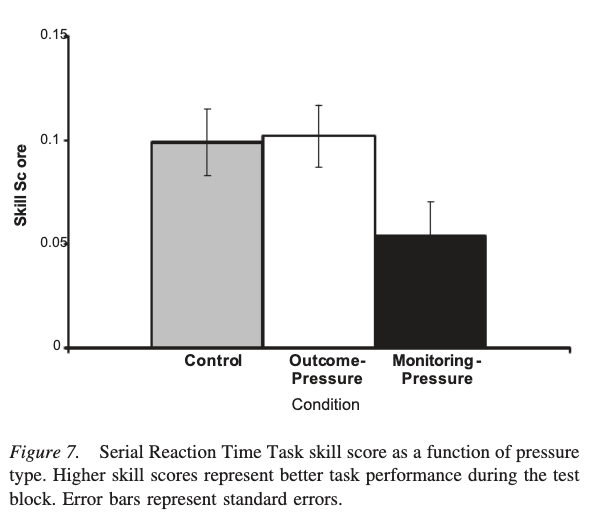Micromanagement is a Performance Killer (Signs, Causes, and Actions)
Legendary in 4 min
Get these letters delivered to you:
My heart was pounding. I said "you know what, I don't care what you do with it anymore, ok?"
A month before this stressful phone call with a colleague, I started work on one of the worst projects in my life. The signs and symptoms were all there, but I chose to ignore it.
"Howie, please send us every question you'll be asking in the workshop."
"Howie, can you write out descriptions for every exercise you'll be running?"
"Howie, next time you need to send all your emails to us and we can relay the message to the client"
I felt like a puppet where all the strings were pulled by someone else. It was the most humiliating, traumatic work experience I had.
It was micromanaged to the point of insanity. Everything I wrote was rewritten by the account team. It was like a cab driver taking the scalpel from the surgeon and then performed the operation because the driver knew the patient while driving them from their home to the airport.
After that, I basically pulled the plug and removed myself from the project.
Have you ever been micromanaged? Have you ever micromanaged someone?
Know that when someone believes they are being watched, performance will be lower.
In a research study, 65 undergraduate students were randomly assigned to three different groups:
Outcome-pressure condition
Monitoring-pressure condition
Control
They were then asked to complete a skill test whereby they had to press one of four keys everytime they see a square appear on the screen and location on the screen would indicate which key to press.
Participants in the first group were informed they needed to improve their speed and accuracy by 20% to earn $10.
Participants in the second group were told that they were being recorded and watched.
Participants in the third group were told to do their best.
The results?
Those in in the monitoring-pressure group performed almost 50% worse than the other two groups.
The myth about micromanagement is that it's about being overinvolved, but the truth is not that the manager is too involved, they are involved in the wrong way, fixating on work style and minor mistakes, appearing as if they are always "watching" instead of collaborating to arrive at a great outcome.
BASE PRINCIPLE
Micromanaging is transactional, while coaching is collaborative.
WHAT IF?
What if you could be free to perform at your highest levels? What if your teams can thrive without your supervision?
Signs of micromanagement:
"I need to approve everything you do." - Indicates a profound distrust in employees' decision-making abilities, leading to a bottleneck in decision-making processes and stifling employee autonomy.
"Just follow my way; it's better." - Reflects an unwillingness to embrace diverse approaches, squashing creativity and innovation by insisting on a single, rigid method of workflow.
"Send me an update every hour." - Demonstrates an excessive need for control, resulting in frequent interruptions that undermine productivity and signal a lack of trust in employees' ability to manage their tasks.
"Why wasn't I included in that email?" - Signals insecurity and a desire for omnipresence in all communications, which can overwhelm teams and create an environment of surveillance rather than trust.
"Let's focus more on these minor details." - Reveals a misplaced priority on trivial aspects at the expense of the broader objectives, often leading to lost sight of the overall mission and goals.
"Are you sure your team member can handle this?" - Undermines team cohesion and trust by questioning colleagues' competencies, eroding the spirit of teamwork and collaborative effort.
"Why are we always hiring? Our team should be stable by now." - Reflects a failure to recognize the impact of micromanagement on turnover rates, with a lack of insight into how leadership style may be driving away talented professionals.
Root causes and what to do about it:
FEAR OF FAILURE
Employee: Provide regular updates a nd reassurances about progress and quality of work.
Manager: Focus on setting clear expectations and outcomes rather than how tasks are accomplished.
LACK OF TRUST
Employee: Demonstrate reliability through consistent, quality work and meeting deadlines.
Manager: Practice delegating small tasks and gradually increase the level of responsibility as trust builds.
INEXPERIENCE
Employee: Offer feedback that could help the manager develop better management skills.
Manager: Seek mentorship or training in management techniques and learn effective delegation.
CONTROL ISSUES
Employee: Engage in open dialogue about your need for autonomy and how it affects your productivity.
Manager: Reflect on the reasons for the need to control and consciously step back to allow employees more freedom.
PERFECTIONISM
Employee: Show how high standards can be maintained without excessive oversight.
Manager: Recognize that there can be multiple ways to achieve a high-quality outcome and learn to accept different approaches.
INSECURITY
Employee: Acknowledge the manager's expertise and contributions to help boost their confidence.
Manager: Work on personal development and self-confidence, perhaps through professional coaching or feedback from peers.
"Leadership is not about being in charge. Leadership is about taking care of those in your charge."
~Simon Sinek
Don't become a victim of micromanagement, either on the receiving end or on the giving end.
Live your legend 🤘🏽,
Sources:
DeCaro, Marci S., et al., Choking Under Pressure: Multiple Routes to Skill Failure, Journal of Experimental Psychology, May, 2011 - LINK
Wigert, Ben, The Ultimate Guide to Micromanagers: Signs, Causes, Solutions, Gallup, July 17, 2020 - LINK
Micromanagement Explained: 6 Signs of Micromanagement, Masterclass, March 22, 2022 - LINK
Two More Ways I can Help You:
1/ Strategy Hour
Book a 1:1 call with me and we can talk about brand strategy, self-mastery and/or LinkedIn growth (I grew from 7K to 35K followers in 3 months).
2/ Personal Brand Clarity Program
Three 1:1 coaching sessions to get clarity on your story and your brand so you can attract what and whom you want into your life.



